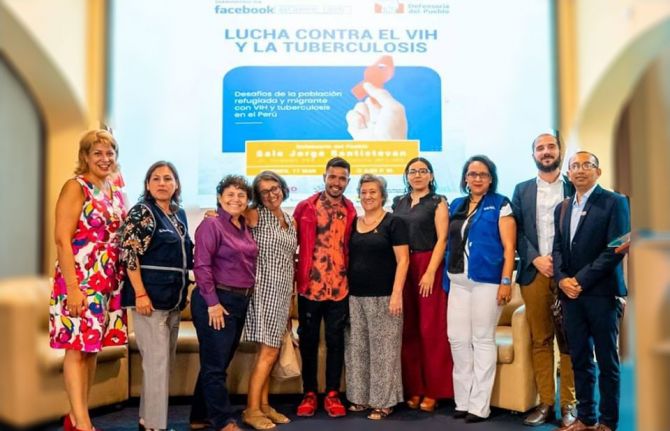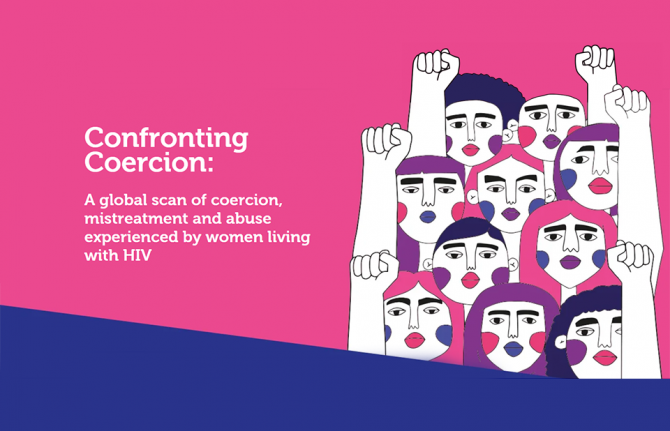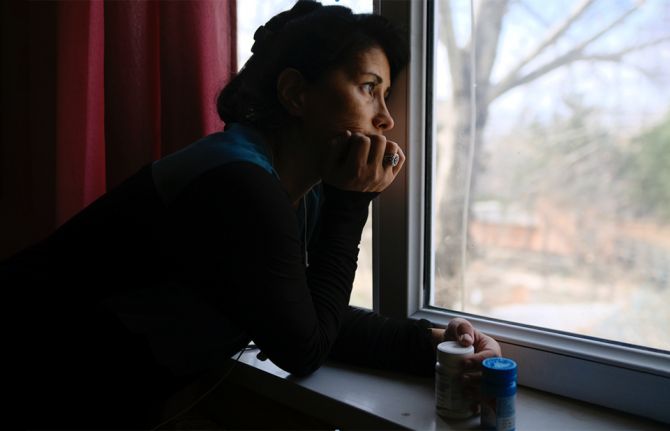
Feature Story
Lessons from the AIDS response can shape new paradigm for development post-2015, Michel Sidibé tells UN Human Rights Council
01 March 2013
01 March 2013 01 March 2013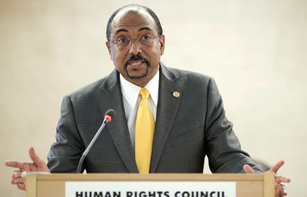
UNAIDS Executive Director, Michel Sidibé speaking at the 22nd session of the UN Human Rights Council on 28 February. Credit: UNAIDS
In a high-level address to the 22nd session of the UN Human Rights Council on 28 February, UNAIDS Executive Director, Michel Sidibé, stressed the crucial importance of viewing the AIDS epidemic through a human rights prism. The AIDS response, he said, is inextricably linked with the human rights agenda. If the world is to get to zero new infections, zero discrimination and zero AIDS-related deaths then ensuring rights, social justice, equity and gender equality is vital.
Mr Sidibé stressed that the AIDS response has paved the way for transformative progress across a broad range of rights, providing the engine for achieving the development goals. He noted that “critical lessons learned from the response to AIDS can help to ensure that the post-2015 development agenda puts human rights at its very center.” These lessons include promoting inclusion and participation; providing resources and political space for civil society to drive social change from within; and ensuring attention to the most marginalized.
Singling out the way the challenge to the epidemic has been a pathfinder to dealing with inequality, he spoke of the power of people living with HIV who have been the drivers of progress in the AIDS response. He called them “true human rights defenders fighting for their lives and for the lives of millions of others.”
Critical lessons learned from the AIDS response can help to ensure that the post-2015 development agenda puts human rights at its very centre.
UNAIDS Executive Director, Michel Sidibé
While recognizing that there has been progress made in the response to the epidemic, Mr Sidibé stressed that there is still much more to be done. He put special emphasis on the need to reduce the existing prejudice, discrimination, exclusion and criminalization of people living with HIV and to address the punitive approaches to the most vulnerable and at higher risk of infection such as sex workers, people who use drugs, men who have sex with men and transgender people.
“It is outrageous that in 2013, when we have all the tools to address this epidemic, more than 1.7 million people will die because they do not have access to treatment,” said Mr Sidibé. “It is human rights work we must do to end this epidemic—to reach all those in need of HIV prevention, treatment, care and support,” he added.
Mr Sidibé urged that the post-2015 development framework explicitly embrace the human rights framework, as well as a right-based approach to development. Referring to Council members as the world’s foremost leaders on human rights, Mr Sidibé told the Council, “Ending AIDS is a human rights legacy for us all. We can halt and reverse AIDS if we maintain our momentum and commitments through and after 2015.”
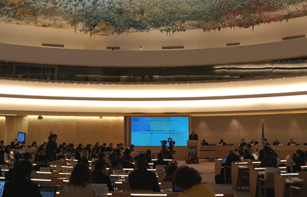
Established in 2006 to replace its predecessor, the Human Rights Council is mandated to promote universal respect for the protection of all human rights and to address situations where they are being violated. Credit: UNAIDS
The UNAIDS Executive Director joined other dignitaries in addressing the High Level Segment of the UN Human Rights Council session, including the German President Joachim Gauck and the Vice Presidents of Colombia and Iraq.
Established in 2006 to replace its predecessor—the Commission on Human Rights—the Human Rights Council is mandated to promote universal respect for the protection of all human rights and to address situations where they are being violated. It also monitors whether member states’ human rights obligations and commitments are met through its Universal Periodic Review mechanism.
During the 22nd session, which is running from 25 February to 22 March, a broad range of issues are being discussed. These include: the negotiation of a landmark resolution to protect human rights defenders; the rights of children to the highest standard of health; and resolutions on the rights of people with disabilities, minorities and those subjected to racism and xenophobia.
In the lead up to his intervention at the Human Rights Council, Mr Sidibé held a number of bilateral meetings to further the Human Rights agenda. These included the Minister of Foreign Affairs of Nigeria, Professor Viola Onwuliri; the United States Assistant Secretary of State for International Organization Affairs, Dr Esther Brimmer; the French Minister Delegate for the Francophony, Ms Yamina Benguigui; and the Minister of Development of Denmark, Christian Friis Bach.

